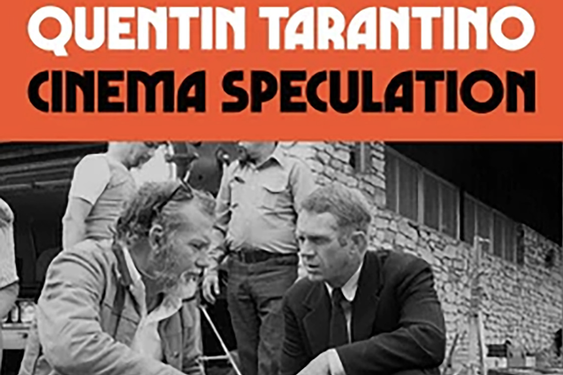Diversity. Equity. Inclusion. These terms each have their own meaning and, when taken together, encompass a vision for a world in which differences are strengths to be recognized and celebrated. Here, we take a look at some of the areas of our culture where these values are changing the landscape of what it means to be a multicultural society. From business to education, from looking at our own biases to learning how to be our authentic selves, each of these titles has something unique to offer on the journey.
'All Report: Culture, Diversity, Leadership – Stop the B.S. and Execute' by Diane Primo
Diversity, equity and inclusion, or DE&I, is an evolving area of focus in the workplace. The benefits of employing a diverse workforce have been well established in numerous studies, but there is often a gap between businesses that have a diverse workforce and businesses that manage and leverage it properly. Diversity alone is not enough. Given that women and minorities comprise 70% of the workforce (and growing), businesses can’t afford to get this wrong. Social and economic achievement depends upon advancing and including all employees equitably. In "All Report," corporate communications expert Diane Primo reveals the results of a new quantitative survey of a nationally represented sample of workers that will help busy executives understand the basic needs, attitudes and what corporate responses currently do and don’t work. Further, the book examines 23 existing diversity programs to understand their effectiveness and share each group’s view. On the basis of resulting key learnings, Primo then lays out a basic, actionable, seven-step plan that every business should follow to strengthen their DE&I initiatives.
'Untamed Equality: The New Frontier of Safety, Security and Inclusion' by Todd A. Weiler
In his book, "Untamed Equality," Todd A. Weiler demonstrates the paradigm shift that is required for true equality to prevail. In his Pentagon roles under two Democratic presidents, Weiler lead the charge for a more inclusive military — one that is “a mirror of the society it serves” in which more Americans feel they have a personal stake and mutual respect. He championed and moved forward much-needed changes in the policies and attitudes on military personnel recruitment and retention. These span everything from diversity initiatives to the health and well-being of military members and their families. Weiler helped roll back “don’t ask, don’t tell” policies and worked to provide opportunities in the military to transgender people. He introduced policies that leveled the playing field for various roles in the military and ensured adequate funding to the many moving parts that make up our armed forces — a kind of equality that goes beyond personal attributes to recognize the equally important roles each of us plays, whether at work or in our communities. When it comes to the U.S. defense sector, he argues, “untamed equality” involves not only shifting the way the military operates within its personnel machine, but how the military views its role in helping build and secure democratic societies across the globe. It involves seeking and leveraging the benefits of diversity for our own advancement and in service to our allies and neighbors.
'The Bilingual Revolution: The Future of Education Is in Two Languages' by Fabrice Jaumont
Education is an area where the need to serve a diverse student population is often in conflict with budgets, skill sets and politics. Here, we focus on just one aspect: bilingual education. Yes, students need to be conversant in a common language to learn. But that shouldn’t come at the cost of their native language. In "The Bilingual Revolution," linguist Fabrice Jaumont has crafted a remarkable history of bilingual and dual education that demonstrates how mothers and fathers, with no legal and educational expertise, but with simply the eagerness to transmit their native tongue to their children, have begun transforming education in establishing dual-language programs in their communities. It is above all a road map for parents to navigate their way through the education maze and its treacherous administrative hurdles to successfully implement similar programs aimed at raising a generation of bilingual, biliterate, multicultural citizens of the world.
'Caste: The Origins of Our Discontents' by Isabel Wilkerson
It was philosopher George Santayana who famously wrote, “Those who cannot learn from history are doomed to repeat it.” Since so much of our biases are inherited from our culture, it’s important we understand not only what those biases are but how they came to be and continue to persist. In her powerful book, "Caste: The Origins of Our Discontents," Pulitzer Prize-winning writer Isabel Wilkerson examines how caste, or a hereditary class system, underlies the oppression of Black people and other people of color in America. Racism certainly exists, she posits, but the country’s caste system, developed in Colonial Virginia to differentiate indentured immigrants from African enslaved people, is the root of the problem. A caste system permanently empowers those in the top group and permanently dehumanizes those at the bottom, setting them forever apart as “other.” Wilkerson, a former New York Times journalist, who is Black, blends deeply researched history about the caste systems in the United States, Nazi Germany and India — the birthplace of castes — with personal anecdotes that are as eye-opening as the history is wrenching.
'Benevolence in Black: A Celebration of Black People in Austin and the Contributions They Make' by Charlotte Moore (illustrated by Cassidy Reynolds)
In America, less than 15% of the population is Black. In some places, a white person could go a whole day without interacting with a person of color. How, then, can we bridge the experiential gap when it comes to better understanding (and combating) racism? "Benevolence in Black" is a book geared especially to those who live in areas of the country where Blacks are underrepresented. It introduces us to a set of extraordinary Black people living in Austin, Texas, going deep into who they are as people and the many ways they contribute to their communities. Along the way, they openly describe what it’s like to exist in the world in their bodies, how they feel living in their skin. The result is, as one reviewer put it, “accessible, emotional and intimate.” A portion of the proceeds of this book supports the Black Bodies Project, an Austin-based nonprofit organization that uses multimedia to educate the public about how systems of racism negatively impact our society. The book itself is a multimedia production, featuring gorgeous full-page portraits by local photographers and presenting as the coffee-table companion piece to the documentary, "Black Bodies." "Benevolence in Black" will open readers' eyes to what it’s like to be Black in America.
'Covering: The Hidden Assault on our Civil Rights' by Kenji Yoshino
To cover is to downplay a disfavored trait so as to blend into the mainstream. Racial minorities are pressed to “act white” by changing their names, languages or cultural practices. Women are told to “play like men” at work. LGBTQ people are asked not to engage in public displays of same-sex affection. The devout are instructed to minimize expressions of faith, and individuals with disabilities are urged to conceal the paraphernalia that permits them to function. NYU Law Professor Kenji Yoshino argues that the work of American civil rights law will not be complete until it attends to the harms of coerced conformity. Though we have come to some consensus against penalizing people for differences based on race, sex, sexual orientation, religion and disability, we still routinely deny equal treatment to people who refuse to downplay differences along these lines. Drawing on his life as a gay Asian American man and his career as an acclaimed legal scholar, Yoshino’s book is one part lyrical memoir, one part astute legal treatise. Most importantly, it is an eye-opening call for social evolution, one in which we no longer compete for recognition of our differences, but come together in recognizing each of us needs to be who we authentically are.
(BookTrib.com is the lifestyle destination for book lovers, where articles and books are paired together to create dynamic content that goes beyond traditional book reviews.)
©2021 BookTrib. Visit at booktrib.com. Distributed by Tribune Content Agency, LLC.



